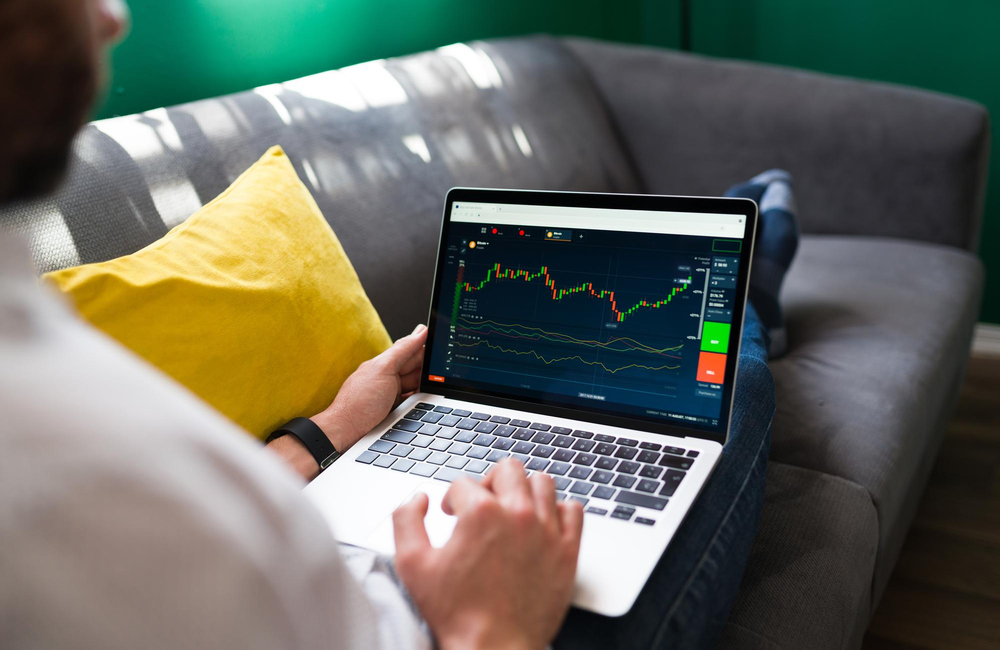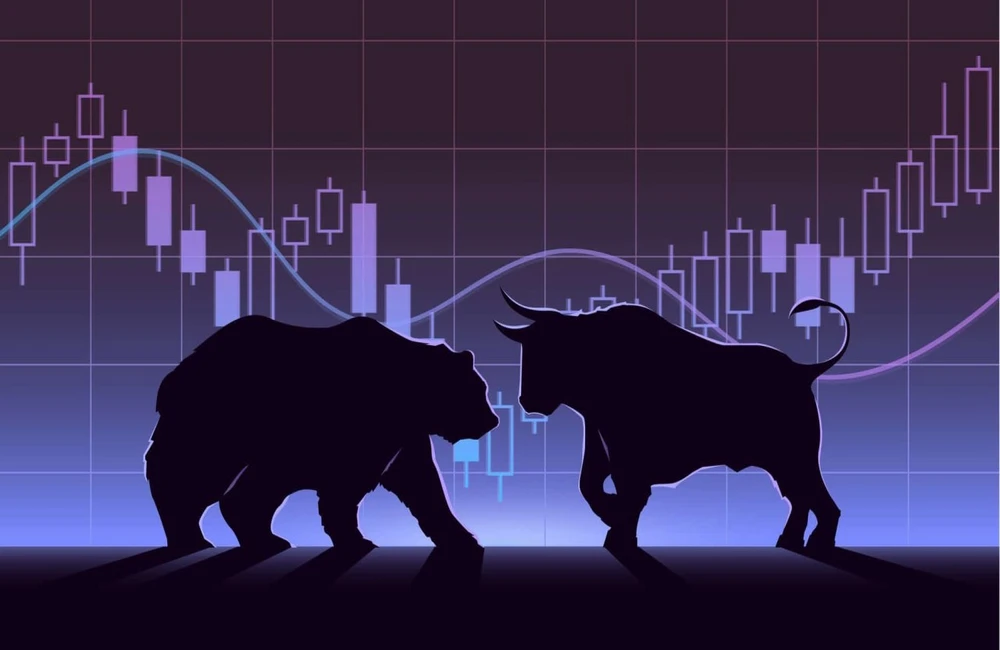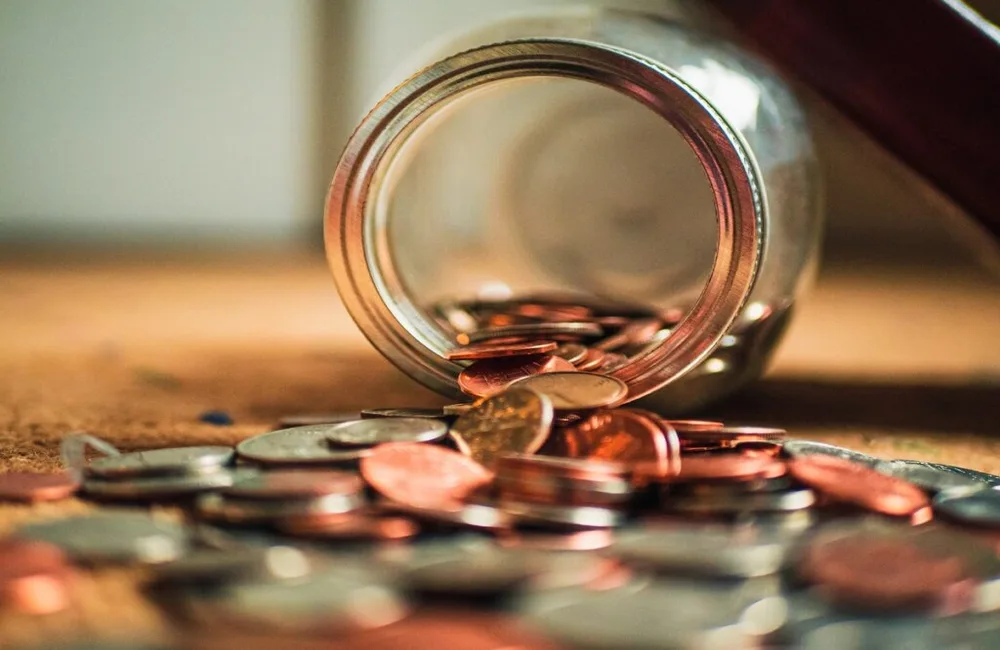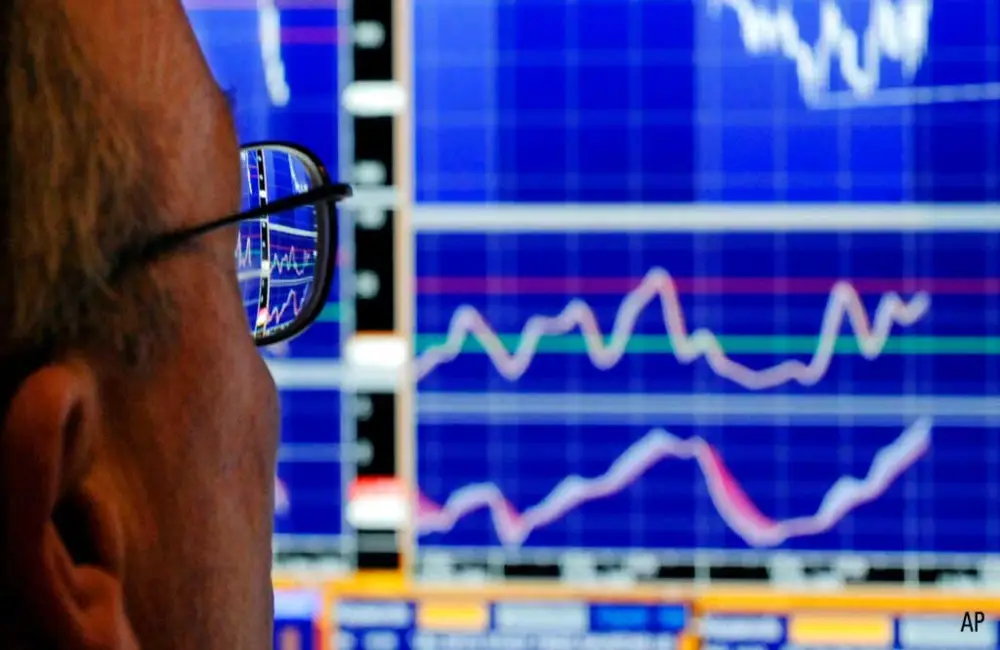ASX futures were up 54 points or 0.8% at 7157 at around 8.00 am AEST, pointing to a positive start to trading.
US stock indexes climbed, energy prices slumped and bonds sold off after Russia said it had withdrawn some troops from the Ukrainian border.
The S&P 500 rose 1.6% Tuesday, breaking a three day losing streak. The blue-chip Dow Jones Industrial Average rose 1.2%, and the technology-heavy Nasdaq Composite gained 2.5%.
Tuesday’s gain followed a fade from investors’ fears of escalation between Ukraine and Russia. The prospect of war has in recent days introduced a geopolitical risk element to an already gridlocked market outlook. Investors also have been factoring in concerns about inflation and signs of easing supply-chain problems.
At home the S&P/ASX 200 closed down 0.5% at 7206.9. The biggest weight on the benchmark index was energy stocks, which ended 3.1 percent lower, whereas technology stocks gave a lift, ending 1.0 percent higher.
Beach Energy, Santos and Whitehaven coal dropped 10.5%, 4.2% and 3.5% respectively. BHP fell 0.3% even after telling investors its net profit for the first half more than doubled as the prices of all its commodities, including copper and coal, held firm.
Technology stock Block climbed 4.2%, and Xero ticked 0.3% higher. Seek jumped again, up 6.1 per cent, after the jobs advertiser raised its annual guidance for the second time, expecting more strong hiring activity from employers.
Elsewhere, European stock indexes recovered from heavy losses on Monday, and the pan-continental Stoxx Europe 600 was up 1.4 percent. Most Asian stock markets, which closed ahead of Russia’s pullback announcement, were lower. Japan’s Nikkei 225 and Hong Kong’s Hang Seng Index both slid 0.8%. Mainland Chinese stocks’s Shanghai Composite Index also added 0.5%.
In commodities, gold futures fell 0.85% to $US1853. Brent crude fell 3.4% to $US93.20 a barrel. Iron ore slid 8.7% to US$136 on reports that authorities in China are cracking down on price speculators.
In bond markets, the yield on the Australian 10-year jumped to 2.18%. The benchmark US 10 year Treasury yield shot up to 2.05%. Yields fall when prices rise.
The Australian dollar was fetching 71.48 US cents at near 8.00 am AEST, a slight dip from its previous closing price of 71.24. The WSJ Dollar Index, which measures the US dollar against 16 other currencies, shed to 89.82.
Asia
In Asian markets, which closed mostly before the news of Russia’s withdrawal from parts of Ukraine, Chinese shares finished with gains thanks to liquor makers. The Shanghai Composite Index increased 0.5 percent, the Shenzhen Composite Index was up 1.4 percent and the ChiNext Price Index was up 3.1 percent. Shares of Chinese liquor producers were in the feted spirit of the Beijing Olympics. Kweichow Moutai rose 1.2% while Wuliangye Yibin was up 0.9%. Iron-ore stocks may be in the spotlight, with Chinese authorities reportedly planning to send teams to commodities exchanges and ports to inspect the iron-ore market. Shandong Iron & Steel and Baoshan Iron & Steel both lost 1.1%.
In Hong Kong, the Hang Seng Index finished 0.8% down, hurt by anxiety about US interest rate increases, KGI Securities says. Russian-Ukraine tensions also weighed on market sentiment, it adds. Leading declines was BOC Hong Kong which ended 4.1% down. On oil majors, China Petroleum & Chemical Corp plummeted 3.6% and PetroChina Company shed 3.5%. Shares for insurance companies also fell. China Life Insurance and Ping An Insurance both ended 3.5% lower. Wuxi Biologics (Cayman) was the biggest percentage gainer, rising 10%.
Japan’s Nikkei Stock Average fell 0.8%, as uncertainty on pace of tightening by the US Fed and geopolitics between Ukraine and Russia weighed on investors. Financial stocks were particularly weak, dragging down Sumitomo Mitsui Financial Group by 1.0% and Mitsubishi UFJ Financial Group by 2.6%. Japan Post Bank ended 11% lower after its 3Q net profit dropped 49% on-year. To be sure, other notable losers include Recruit Holdings, which sank 12% after posting slower earnings growth for the quarter ended December.
Europe
European shares rose after investors welcomed news of a potential Russian military pull-back from its border with Ukraine. The pan-European Stoxx 600 gained 1.4%.
“Early signs of de-escalation in eastern Europe allowed risk assets to rebound today, recovering some of yesterday’s heavy losses for equity,” IG chief market analyst Chris Beauchamp says. “Traders went on the buy button spree with a vengeance this afternoon on hopes that the Ukraine situation seems to be calming down.”
In London, the same feeling lifted the FTSE 100 to end Tuesday 0.77% higher.
There is still a massive troop build-up in the region but this and other signals of de-escalation were seen as positive, offering a market already excessively overstretched to the down-side an excuse to rally, Beauchamp says.
“While inflation is taking the front stage and investors are worried tighter monetary policy might harm the market, they seem to reemerge from their hiding spots and are buying up bargains.”
North America
US stock indexes gained and energy prices fell and bonds sold off after Russia announced it had withdrawn some of its military from the Ukrainian border.
The S&P 500 rose 1.6% Tuesday, breaking a three day losing streak. The blue-chip Dow Jones Industrial Average rose 1.2%, and the tech-heavy Nasdaq Composite lifted 2.5%.
Tuesday’s advance came as investors’ concerns about a conflict between Ukraine and Russia eased. The threat of war has, in the past couple of days, introduced a geopolitical factor to an already wretched market outlook. Investors also have remained focused on concerns about inflation, along with signs of easing supply-chain snags.
“I think there are two major crosscurrents. The one that’s been out there, which is inflation. The other being in the near term which has had ramped up over the last week which is Russia," David Kalis, manager of the Future Fund Active ETF, said.
The prospects of a Russian incursion into Ukraine have grown in recent days. Investors are nervous about the economic impact of such a conflict. Those fears subsided somewhat Tuesday, after a statement from the Russian president, Vladimir V. Putin, that Moscow had pulled back some troops from the border, but mixed messages continued to cloud the picture.
“Just because we had one good day, I don’t think we’re out of the woods,” Vincent Deluard, global macro strategist at StoneX.
Oil prices retreated from the eight-year peak they reached Monday. Brent crude, the global oil benchmark, declined 3.4 percent, to $93.20. Prices of European natural gas, a benchmark, shed 3.4%.
Yields on benchmark US 10-year Treasury notes reached 2.044%, their highest settle value since July 2019. Bond yields and prices trend in opposite directions.
Bitcoin prices rose, gaining 4.2% from their Monday 5 pm New York values of $42,256.83.
“The market is believing what it sees in the headlines, but you do have to be careful with these things,” said Hani Redha, a multi asset fund manager at PineBridge Investments. “There is news like this in the so-called fog of war we must be careful on.”
Investors are still weighing rising inflation as they anticipate the Federal Reserve’s meeting in March. Early Tuesday fresh data showed prices suppliers charged businesses and other customers spiked in January, rising by a seasonally adjusted 1% from the prior month, the steepest gain since May 2021. Producer prices were up 9.7% on the year, almost identical to the prior month.
European stocks surged after a sharp drop on Monday, with the pan-continental Stoxx Europe 600 gaining 1.4 percent. Russia’s MOEX index surged more than 3%. The Russian ruble rose 1.5% against the dollar and the Ukrainian hryvnia gained 0.9%.
It voted on Tuesday to request that Mr. Putin recognize two Russian-backed separatist republics in the eastern region of Ukraine known as Donbas as independent states. The action might also be a pretext for an invasion of its neighbour. And Russia has denied any plans to attack.
Russia is one of the world’s largest oil suppliers, the largest exporter of wheat, a significant producer of metals including palladium, aluminium and nickel, and Ukraine is a crucial transit route for territories in Europe to receive their natural-gas supplies.
“The sheer size of the impact this thing’s had has probably been in commodities, and it’s the feed through of that into inflation,” Mr. Redha said. A war that drives up commodity prices and inflation could lead central banks to hike interest rates faster than expected, he said.
Some investors are wagering that the global economic fallout from a war would be contained. “The market is going to react first and ask questions later in the near term,” said Brian O’Reilly, head of market strategy at Mediolanum International Funds. “But anything that happens short of a huge escalation of tensions doesn’t really alter the trajectory of the global economic outlook.”
It is earnings season, with results expected from companies including Airbnb after markets close. Shares of Marriott International were up 5.8 percent after the hotelier reported that its fourth-quarter revenue doubled.
Tower Semiconductor, listed on the Nasdaq, gained more than 42% after The Wall Street Journal reported that Intel was nearing an agreement to acquire the Israeli chip company for nearly $6 billion.
























